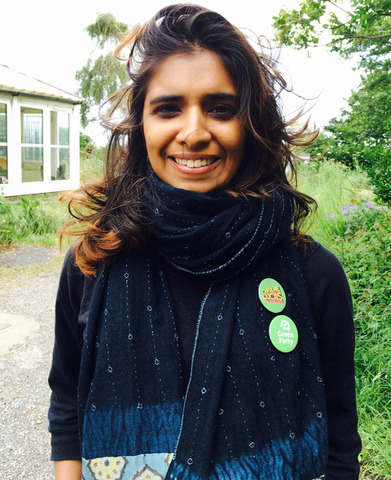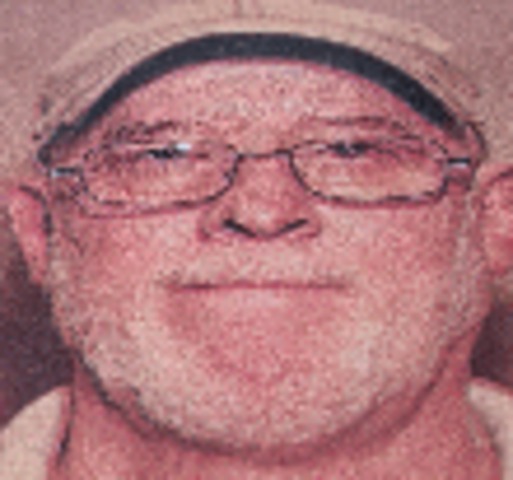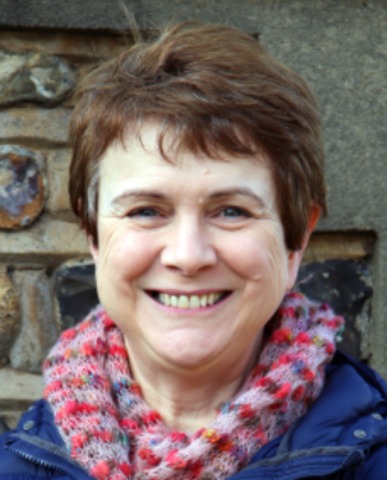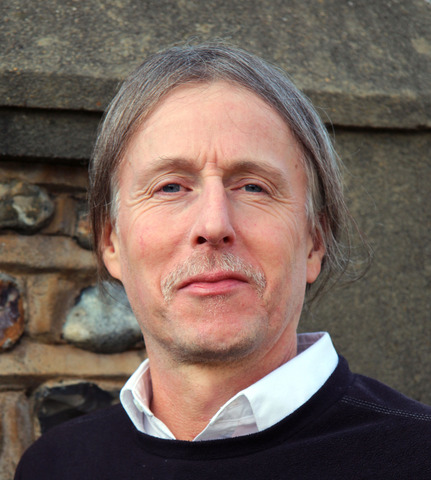Central Hove candidates explain why they want to be a councillor. They also answer questions sent in by the public via social media.
Not your ward? Click here to find your neighbourhood on our interactive map.
Nine candidates are standing for the two Brighton and Hove City Council seats in Central Hove ward.
Why do you want to be a councillor?
Businessman Steve Barrey and Rico Wojtulewicz, head of housing and planning policy at the House Builders Association, are both standing for the Conservatives. They have responded jointly to explain why they are standing:
We are community-spirited individuals with different but complementary perspectives. Our shared passion for Central Hove, from running a business, living there and voluntary work, means we are able to understand what can make a positive impact to people’s lives and our community.
We revel in using our experiences to understand what our neighbourhood wants and how we can help them achieve their ambitions. Central Hove is where we live and work and we know we can help turn it into a destination venue and the jewel in the city’s crown.
Aditi Bhonagiri is a social science researcher and digital media and communications specialist standing for the Green Party:

As a young BAME woman, I am under-represented in the chambers of local-decision making. I want to use my diverse professional skills and personal experiences to:
• improve people’s quality of life
• conserve our natural and cultural heritage
• preserve public and community services
• scrutinise and communicate complex council decisions
• ensure all residents are heard, supported, included and safe
• support innovative initiatives that enable the transition to a carbon-neutral economy
• promote ecologically sustainable consumption behaviours
• work towards effective food and dry waste management
• collectively respond to national crises like austerity, rough sleeping, cuts to the NHS and social services, loneliness and mental health issues.
Carol Bullock is a copywriter and former nurse, standing for the Green Party:

As a mum of three, a former nurse and someone who is acutely aware of the threats posed by climate change, I am compelled by a mixture of hope and anger to do what I can to help combat ever increasing levels of social and environmental injustice.
As a councillor for Central Hove I want to contribute at a local level, engaging directly with my fellow residents to ensure they get fair access to the services they need and deserve, and to help this wonderful city respond to the twin emergencies of climate change and biodiversity loss.
Nigel Furness is a retired sports injury physiotherapist standing for the UK Independence Party:

I would like to participate in the decision-making of how this city is run and to bring, hopefully, some common sense and sanity to the proceedings.
Jessie MacNeil-Brown is head of activism at The Body Shop International. She is standing for the Women’s Equality Party:
I am so proud to live in Hove and think it is the best city in the UK which is why I want our council to work harder for all residents with a focus on protecting the most vulnerable during a time when further budget cuts are expected from central government.
Austerity disproportionately affects women so I want to work to ensure gender-aware budgeting is applied to all decisions, for a more effective affordable housing strategy and I want to push for increased investment in women’s services to reflect the dramatic rise in demand, with a particular focus on specialist services.
Clare Moonan is a former NHS worker seeking re-election for Labour

Gary Wilkinson works in education and social care. He is standing for Labour

What are you views on the design and impact on traffic of the Valley Gardens phase 3 project in Old Steine which includes making Madeira Drive one-way by the Palace Pier?
Steve Barrey and Rico Wojtulewicz: As well as discouraging unnecessary vehicle travel and promoting the use of electric vehicles, we must support more shared spaces. Better air quality and safer communities is an ambition we must not lose sight of.
However, we believe a redesign for Madeira Drive is needed. We are particularly concerned about the impact of the proposal to replace the pier roundabout with traffic lights.
The council’s own models show a considerable increase in congestion along the seafront. We must do more to engage with all stakeholders to ensure we are supporting everyone who will be impacted by the current proposal.
Aditi Bhonagiri and Carol Bullock: This project was originally envisaged as a green lung at the heart of the city, a safe and beautiful public space that prioritises better provisions for walkers and cyclists and tackles its infamous accident-black-spot reputation.
The approach from the two major parties has been to view this project as just a traffic scheme. Our view is that any decision-making should return its original objective while easing out traffic congestion. This requires further in-depth consultations from experts, residents and businesses.
In the meanwhile, we have raised these concerns and won assurances for better cycle lane provision and prioritisation of sustainable transport.
Nigel Furness: Totally opposed. This nonsensical “scheme” flatters to deceive. The modernist formal garden design contradicts the current informal layout of green spaces randomly dotted with mature English elms.
Reducing the overall space for traffic, replacing the roundabout with lights and making Madeira Drive one-way is insanity on steroids and will succeed only in achieving traffic chaos, both in the immediate and wider areas, plus drastically increased air pollution – the very opposite of the desired goal.
Between the shared cycle/pedestrian paths across the garden and the toxic air concentrated in them, I would hardly describe this as a safe public area.
Jessie MacNeil-Brown: The key aims of the scheme – to improve air quality, pedestrian safety, cycling and walking infrastructure, access to public transport and access to the seafront – are ones that the Women’s Equality Party support.
But we also support the Valley Gardens Forum, which wants a pause for more consultation. They are working on an alternative plan, which would retain a “revamped” roundabout on the seafront road. A non-partisan position and a consensual approach is the sensible way forward.
Clare Moonan and Gary Wilkinson: The designs are currently being drawn up to a detailed design stage.
All comments and issues raised are being addressed and we hope to see a detailed scheme which meets the needs of all residents and businesses/ visitors expected.
Those detailed designs will have to ensure that the city keeps moving while addressing the impacts of the climate change emergency and supporting a modern city where sustainable transport routes are protected and enhanced.
There is a huge problem with dog owners leaving waste behind, either in bags or just out in the open in parks and street. What will you do to tackle dog owners not picking up poo?
Steve Barrey and Rico Wojtulewicz: DNA testing may be a solution in making sure dog owners act responsibly. However, until it can be successfully implemented, we must encourage the new field officers to crack down on offenders whenever fouling is witnessed and make sure signs discouraging it are more prominent.
We have already spoken to Cityclean about larger signs along the seafront and we have been assured they are reviewing the situation. Better signage would also help residents feel more comfortable to speak up when they see irresponsible owners let their dogs foul. Fouling is a health hazard and socially unacceptable.
Aditi Bhonagiri and Carol Bullock: Dog fouling is not only a major public nuisance but it also poses serious health threats from toxacara, the parasitic worm found in dog faeces. However, low awareness of its impacts on community health outcomes breeds complacency among dog owners.
Additionally, cuts to council funds have resulted in reduced ability to enforce dog fouling legislation and increase the number of dog poo bins in public spaces. To encourage dog owners to behave responsibly, we will create a strong community-driven public awareness campaign that links dog fouling to the dangers to human health in the community.
Nigel Furness: All council services should be brought in-house forthwith. I would reappoint wardens in all major parks and, in the absence of what passes for a police force on the beat, I would extend the powers of traffic wardens into those of community wardens, empowered to issue summary fines to all miscreants (dog foulers, rogue cyclists and litter bugs among others), thereby achieving at a stroke an enhanced environment and better value for council tax payers.
Jessie MacNeil-Brown: The Women’s Equality Party love dogs and our dog-friendly city. As a new dog owner I think this is an awful habit.
We would look at ideas that have worked elsewhere, like painting it pink to make it really obvious or in Taiwan everyone who picked up dog poo was offered a lottery ticket and it halved the amount of excrement on the streets.
But we do not try to present ourselves as a party with an answer on everything so we’d work with local dog groups and walkers to find a solution. We will work with others to find solutions.
Clare Moonan and Gary Wilkinson: Our new enforcement officers who have been brought in-house are out and about in neighbourhoods and targeting those whose anti-social behaviours are affecting all our lives. We need to both educate and enforce our way out of this problem and we want that message to get through to all who choose to leave dog mess across our city.
The council is planning more electric vehicle charging points. To what extent do you support this and will you commit to electric vehicle only parking spaces?
Steve Barrey and Rico Wojtulewicz: We absolutely need more electric charging points. However, they must be rapid charging points with the continuation of lower-priced resident parking permits for low-emission vehicles.
Electric vehicle only parking spaces will help more early adoption of this technology but, with a 300-mile range electric vehicle costing almost £80,000, we cannot forget about the many people in our city who are not in a position to switch yet and need improved public transport and access.
Aditi Bhonagiri and Carol Bullock: We fully support and encourage the expanding rollout of EVCPs (electric vehicle charging points). From a practical point of view, EVCP parking spaces should be for electric vehicles only.
Given the limited nature of parking in the city, we acknowledge that this may seem unfair to those who are not in a financial position to update to an electric vehicle. However, reducing the city’s carbon footprint has to be prioritised to tackle the urgent need to reduce the city’s rising air pollution levels and respond to the climate emergency.
This initiative will provide vital incentives to prospective car owners to choose low emission vehicles.
Nigel Furness: A very definite yes to both.
Jessie MacNeil-Brown: Electric cars are a fantastic sign of what is possible in terms of turning away from fossil fuels. Despite the technology being very new, I am a big supporter of them.
The Women’s Equality Party welcome the council’s plans to install charging points as long as the electricity is coming from renewable sources. Electric vehicle only parking spaces are a great idea. Given the challenges we have with parking in our city, we would hope they act as an incentive to use electric cars.
Clare Moonan and Gary Wilkinson: We fully support the installation of electric vehicle charging points and in fact it is the Labour council that successfully bid for £300,000 funding from the government to allow the installation of 200 EVCPs.
Test sites are already in operation. It was noted at committee last June that the scheme might need to allow for mandatory parking bays for electric vehicle charging in the event, for example, it becomes clear that electric vehicle owners are having problems accessing advisory bays or to adapting over time to increased demand.
If you design with children in mind, you also make it good for older people and create a healthier and more inclusive place that everyone can enjoy. How are you going to make the city safe and attractive for children to move around independently?
Steve Barrey and Rico Wojtulewicz: Faster responding pedestrian crossings, more cycle filter lights and increased investment in public transport are effective ways to make sure children and older people live more safely in our city.
We must also closely follow research into the design of shared spaces and implement them wherever we are able. For example, making sure cycle paths are not directly outside doorways of flats, particularly those where many older or more vulnerable people live.
Aditi Bhonagiri and Carol Bullock: In response to concerns about road safety, especially for children and vulnerable adults, the Green administration (2011-15) introduced 20mph speed limits in residential streets across the city and made walking and cycling a safer and more attractive option.
We plan to promote outdoor education to increase children’s exposure to nature and introduce free bus passes and annual subscriptions to the Brighton Bike Share schemes for teenagers.
We will support inclusive child-friendly spaces to promote physical and mental well-being like delivering a new Brighton Youth Centre, investing in more playgrounds, public parks and continue to protecting the city’s libraries and delivering leisure facilities.
We are keen to learn from the ideas in Arup’s report Cities Alive: Designing for urban childhoods.
Nigel Furness: I would ensure proper and regular maintenance of pavements to avoid trip hazards for people of all ages and park wardens would ensure that parks are safe spaces (free from drug pushers, knife wielders and predatory perverts).
Jessie MacNeil-Brown: A Plan UK report says two out of three girls aged 14 to 21 have been sexually harassed in public. Safe streets must be a priority if we want to make our city more attractive for our children’s independent movement.
The Women’s Equality Party want to work with schools, youth groups, our police force and city planners. Girls should know their rights and have confidence they will be listened to if they experience harassment.
Hove Central residents have also told us they want more street lighting, especially near the station. This would make older people feel safer when it’s dark.
Clare Moonan and Gary Wilkinson: We need a range of measures to be delivered across the whole city – better protected cycling and walking routes are key to this as well as a safe reliable public transport system.
We are also committed to setting up a fund to support improved community safety and neighbourhood policing measures to give people confidence in the safety and responsiveness of their local communities.
Seagulls and foxes attack bins and rubbish is strewn across city streets. Sometimes people need to step up. How will you encourage people to get involved in keeping their community tidy?
Steve Barrey and Rico Wojtulewicz: Seagulls and foxes are not responsible for the bins not being emptied, neither are our communities. The city has been let down by Labour and we are campaigning hard for a Conservative administration that would reset the clock on this feeling of desperation and make sure our bins do get emptied.
In turn, this would give residents wanting to help keep our communities tidy more confidence that they could make a difference and work with the council to deliver change.
Aditi Bhonagiri and Carol Bullock: Seagulls and foxes are drawn to bins because food waste is not sorted out from dry general waste.
Ideally, food waste should be composted or used to generate renewable energy – supporting such innovative waste management solutions are among our top priorities.
Also, Green budget amendments provided Community Clean Up fund to support local groups protecting the environment.
Our plan is to connect, co-ordinate and expand community-driven street, park and beach clean-ups by consulting experts and community organisations to explore ways of increasing public participation and fostering a sense of shared ownership towards keeping neighbourhood spaces tidier and enjoyable for everyone.
Nigel Furness: The main problem stems from irregular and insufficient emptying of these bins and also the fact that the pedal-operated mechanisms for opening the lids are invariably not working.
This leads to residents depositing rubbish on the pavements because many people are not sufficiently able to reach up with one hand to open the lids while depositing rubbish bags with the other.
Any bags that I find by my bins, if I am able, I deposit in the bins and encourage neighbours to do likewise. Please do not blame the wildlife.
Jessie MacNeil-Brown: The Women’s Equality Party believe in new ways of looking at everything and bringing communities together. Our residents need to feel part of the community if we want them to play their part.
In Central Hove we have a fantastic group called 4 Streets in Hove who organise regular events like community markets and outdoor cinema. As a councillor I want to encourage more self-starting groups to bring the community together and create a sense of pride.
So when annoying seagulls or foxes get into your rubbish, residents step up, clear up or even help a neighbour out.
Clare Moonan and Gary Wilkinson: We have established the Tidy Up Team, who work with local community groups to provide the training, resources and support to enable community tidy up events and programmes to become an essential part of our community-based approach to these issues.
What do you think needs to happen to help rough sleepers off the streets to help both the people and clean up “tent city” areas outside the station and on the beach to make public spaces safer and cleaner for everyone?
Steve Barrey and Rico Wojtulewicz: The government has unlocked a lot of funding to support rough sleepers and build council housing. This money must be used more effectively and we need to consider further local policies, for example, through the planning system or for empty buildings, to improve outcomes and speed up solutions.
The city would also benefit from a more appropriate housing needs assessment and closer links to groups trying to solve rough sleeping and homelessness.
Aditi Bhonagiri and Carol Bullock: Our plan is to treble the impact of the Greens’ “Housing First” programme to help vulnerable residents failed by traditional approaches off the streets and into safe accommodation.
In opposition, the Greens forced through changes to get funding for a 365-day-a-year shelter once again and fought to get the Brighton Centre opened as an emergency shelter on the coldest nights.
Our solutions also include improving and protecting health, mental health and social care services, signing up to the Bill of Rights for the Homeless and setting up a council-run not-for-profit lettings agency and pressing for rent controls in the city.
Nigel Furness: If elected, I would urge our council to provide in-house temporary emergency accommodation for all rough sleepers with a proven local connection. Persons who fail to meet this criteria will receive assistance to return to their original areas.
Drastic as this may seem, our council has a fundamental duty to house the many thousands of local persons on the council housing waiting list.
“Tent city”and aggressive begging would not be tolerated. Wardens would deal with this. As a proviso, these aforementioned units would be staffed by professionals who would cheat neither the occupants nor the ratepayers.
Jessie MacNeil-Brown: More attention, support and research is needed from the council and multi-sector stakeholders to support rough sleepers. No one wants to see tents on our streets but we must focus on early intervention and the issues driving vulnerable people to sleep rough, like mental health and affordable housing.
The Women’s Equality Party welcomes the invaluable work of local organisations like Brighton Women’s Centre, who highlight the contributing factors that lead to increasing numbers of women sleeping rough. Unfortunately most of the services to help our rough sleepers are threatened due to funding cuts. The council needs to improve its efforts.
Clare Moonan and Gary Wilkinson: We are providing many services to support rough sleepers and this is now being effective in reducing the need to sleep rough in the city. >We follow an approach of services engaging with rough sleepers and aiming to build solutions for individuals that will help move them away from and keep them off the streets. Where tents have been put up, there is an agreed tent protocol to be followed.
One other candidate, David John Sears, is standing for the Liberal Democrats in Central Hove.







